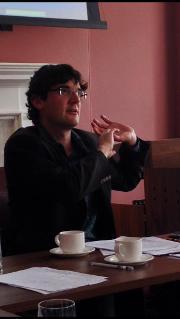From the Vault: Good Reads on Public Philosophy
While Justice Everywhere takes a short break over the summer, we recall some of the highlights from our 2020-21 season.
Here are three good reads on issues relating to public philosophy that you may have missed or be interested to re-read:
- In From Armchair to Engaged Philosophy, Nicolás Brando reflects on the the benefits of philosophers directly engaging with their subjects of research throughout the whole research process – applying this to children as the subject of an important strand of recent and current philosophising. Nicolás’s post references Diana Popescu’s interview with Jo Wolff, which discusses the idea of “engaged philosophy”, published as part of our Beyond the Ivory Tower series.
- Anh Le’s post, which addresses the question: Should Academics also be Activists?
- Lisa Herzog’s interview with Rowan Cruft, the latest in our Beyond the Ivory Tower series, in which they discuss his public philosophy, and in particular his contribution to the Leveson Inquiry into the practices and ethics of the British media.







